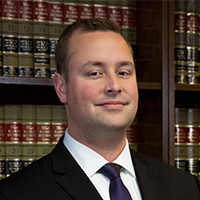Lindenwood Credit & Debt Lawyer, Illinois
Sponsored Law Firm
-
 x
x

Click For More Info:
-
PMJ PLLC
100 S State St Chicago, IL 60603» view mapBankruptcy & Debt Working Relentlessly For You
Patrick is the Founder of PMJ PLLC and has more than 20 years of experience.
800-901-4721
Not enough matches for Lindenwood Credit & Debt lawyer.
Below are all Lindenwood Bankruptcy & Debt lawyers.
Thomas Laye
✓ VERIFIEDAccident & Injury, Divorce & Family Law, Estate, Bankruptcy & Debt, Business
Thomas was born and raised in Cherry Valley, Illinois. He attended Western Illinois University where he received his Bachelor’s in Law Enforcement a... (more)
Douglas Robert Henry
Lawsuit & Dispute, Criminal, Credit & Debt, Property Damage
Status: In Good Standing
Jeffrey Major Krasner
Estate Planning, DUI-DWI, Business, Bankruptcy
Status: In Good Standing Licensed: 48 Years
Joan E Simpson
Bankruptcy, Adoption, Divorce & Family Law
Status: In Good Standing Licensed: 30 Years
Thomas Paul Sandquist
Commercial Real Estate, Real Estate, Corporate, Credit & Debt
Status: In Good Standing
Gary Flanders
Bankruptcy & Debt, Commercial Bankruptcy, Consumer Bankruptcy, Bankruptcy
Status: In Good Standing Licensed: 44 Years
FREE CONSULTATION
CONTACTDavid S. Adduce
Civil Rights, Banking & Finance, Collection, Personal Injury
Status: In Good Standing Licensed: 52 Years
 Patrick Jones Chicago, IL
Patrick Jones Chicago, IL Practice AreasExpertise
Practice AreasExpertise

